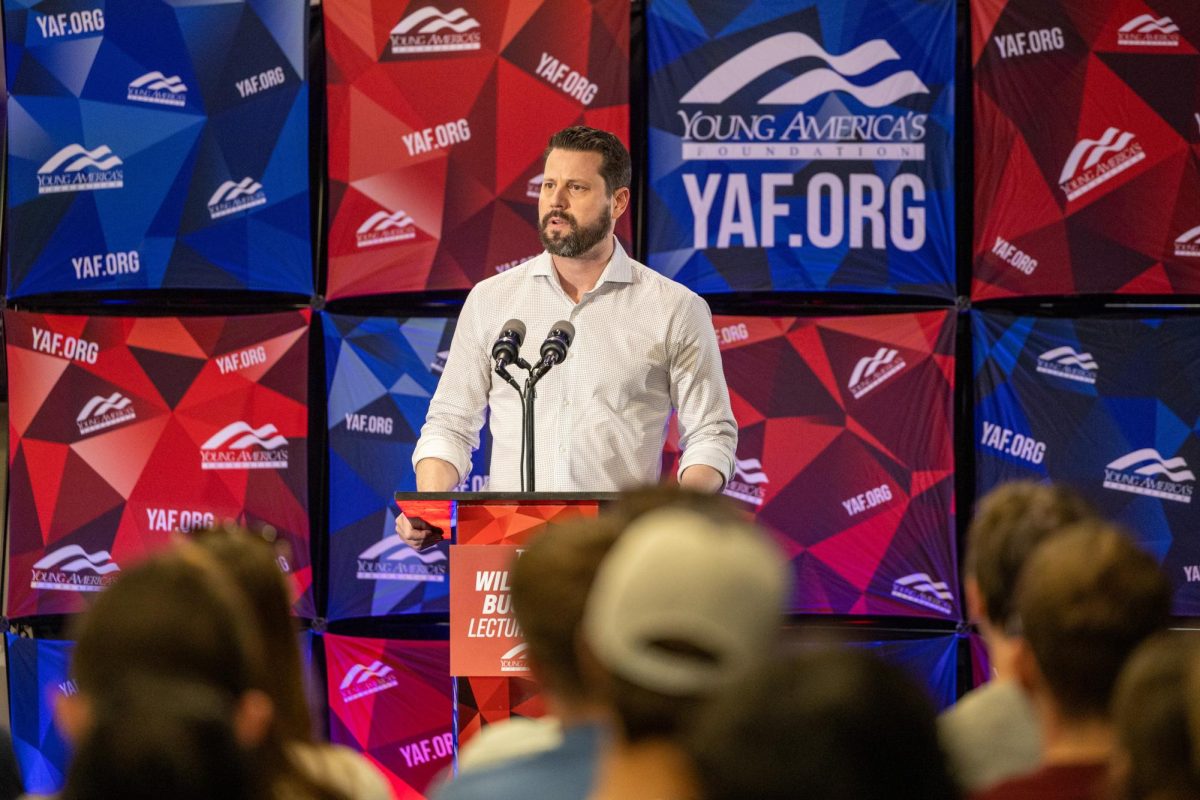Currently, the executive vice president of the Student Government Association is tasked with overseeing the SGA’s legislative branch – both Senate and First-Year Council. If the student body passes a proposed new constitution Feb. 1, this executive position would have entirely new responsibilities, and the legislative branch would have the power to govern itself.
The new constitution would create a Speaker of the Senate, someone elected by senators to lead the legislative branch. The responsibility of the executive vice president would become overseeing and assisting the other vice presidents – student affairs, financial affairs, academic affairs and external affairs – in carrying out their programs and initiatives.
“The executive vice president is essentially the chief of staff of the vice presidents,” said Ian Sams, SGA communications director and a member of the Constitution Revision Committee. “They are going to be more directly working with the vice presidents on their projects in a collaborative way, rather than in a competitive way.”
Many of the responsibilities the executive vice president would take over currently fall under the role of the chief of staff, Sams said. The change would allow the chief of staff to manage the president’s staff, not the entire SGA.
The new constitution would also place the executive vice president entirely within the executive branch.
“One of the challenges for the person who holds that office is that you’re part of the executive branch, but you’re also trying to lead the legislative branch,” said Nicole Bohannon, the current SGA executive vice president.
Bohannon said the responsibilities of the position can be confusing, but the new constitution simplifies and streamlines the job expectations.
“It will allow the person in my position to focus on projects and executive work,” Bohannon said. “It will also strengthen the Senate because they’ll have more ownership in their own leadership. The Speaker of the Senate will have the ability to focus more on the Senate’s agenda, rather than being split between two branches.”
The executive vice president would also have a new election requirement. Students running for the position must be rising seniors, and any student who holds the position and does not graduate would be ineligible for future executive SGA offices.
This provision was designed to ensure cooperation between the executive vice president and the other vice presidents, Sams said.
“It’s not going to be someone who’s trying to use that position as a launching pad to another office,” he said. “They’re going to be able to focus on having the most efficient and effective SGA as possible.”
Bohannon said the senior requirement will also ensure that the executive vice president is someone with significant SGA experience who can aid the other vice presidents.
The executive vice president will also serve as the ceremonial leader of the Senate for special events, and will cast a vote in the Senate in the case of a tie. Former responsibilities of the executive vice president, such as assembling committees and calling special sessions, would fall to the Speaker.
The new autonomy of the Senate would allow the legislative branch to pursue its own agenda if it chooses, without functioning under the executive branch, said SGA Senator Ryan Flamerich.
“There is much more ability for there to be friction between the executive and legislative branches, considering that the legislative branch was in the executive branch before,” he said.
The proposed constitution would also remove the line-item veto power of the SGA president, in which the president can veto one part of a Senate bill or act and keep other parts.
“We didn’t like that the president could just unilaterally ax portions of bills or acts that he or she doesn’t like,” Sams said. “It’s good for the process. It’s good for collaboration between two branches to not have a line-item veto and encourage compromise between the two branches.”
All of these reforms work toward a goal to create a more balanced system of government, , Sams said.
“One of our goals in setting this out was to strengthen the legislative branch by taking them and giving them an independence from the executive branch that I don’t think we’ve ever had,” he said. “Of course, there may be hiccups along the way, but I think in the long run that’s a better system if we’re going to actually be a student government instead of just a student organization.”








